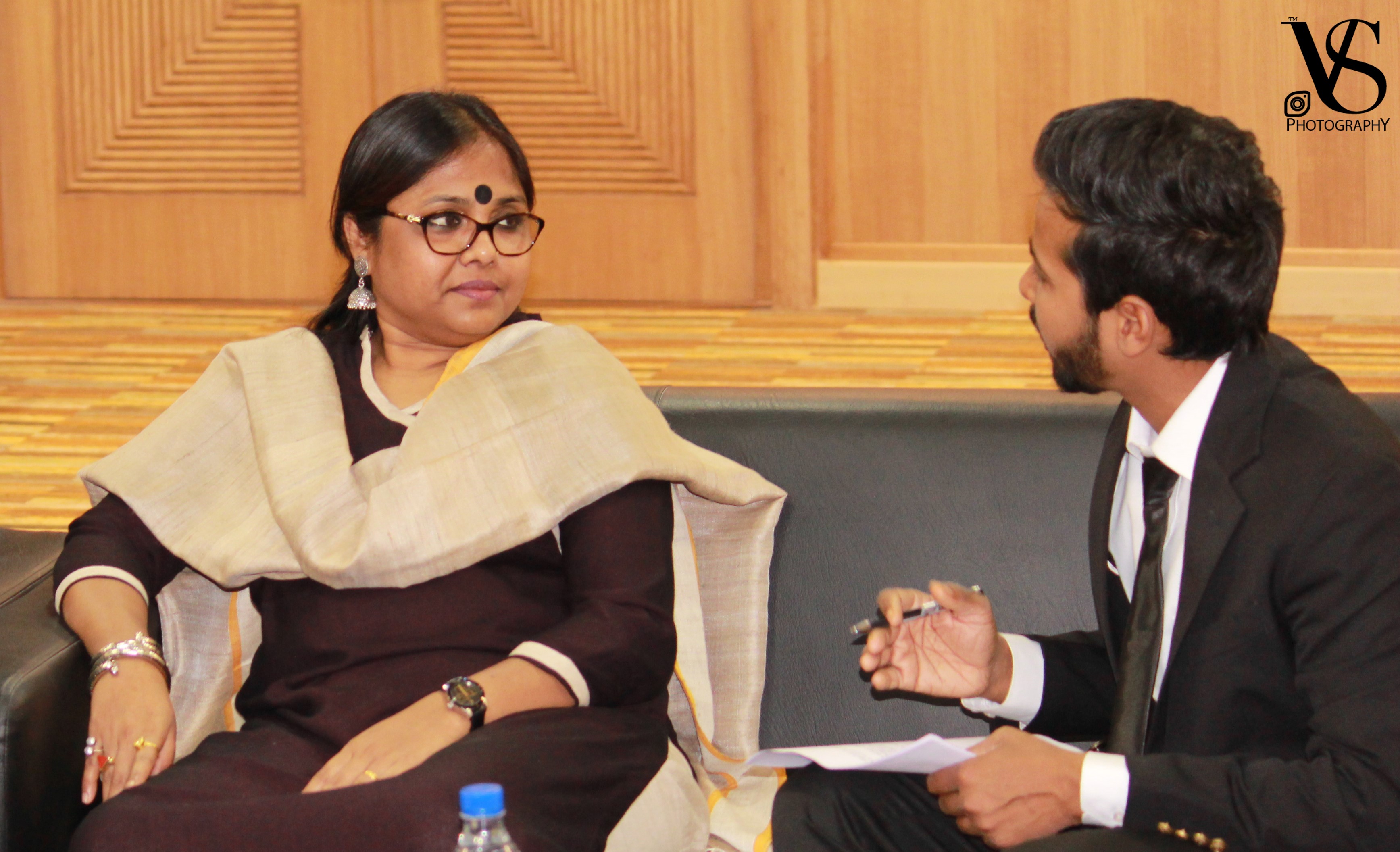In conversation with Ms. Sushma Sahu, Member, National Commission for Women
A former President of Mahila Morcha, Bihar and Ward Councillor in Patna Municipal Corporation, Ms. Sushma Sahu joined the National Commission for Women as a member in 2015. From a young age, she was encouraged by her family to take interest in women-related issues and fight against injustice meted out to them. She did her Masters in Home… Read More »

A former President of Mahila Morcha, Bihar and Ward Councillor in Patna Municipal Corporation, Ms. Sushma Sahu joined the National Commission for Women as a member in 2015. From a young age, she was encouraged by her family to take interest in women-related issues and fight against injustice meted out to them. She did her Masters in Home Science and also B.Ed. and M.Ed. from Patna University. She has served as a lecturer at Magadh University. She is committed to the cause of social justice and women empowerment, having held many important posts in political and social organisations.
Her experience as an administrator and a social activist has helped her to work effectively in the National Commission for Women. Recently Mayank Shekhar, CEO, Legal Bites got an opportunity to interview her. Here are the excerpts of the same.
Legal Bites: Though reservation is done in politics regarding women candidates, but still it is found that in some remote areas, its only in the name of husband, a female candidate asks for votes. She is not the real authority. Please comment.
Ms. Sahu – Generally the choice of candidates from panchayat to parliamentary elections usually depends on their electability. This leaves women in a disadvantaged position. Limited social interaction and unlimited household responsibilities tie them down and shrink the space for electoral politics for them. Odds are heavily stacked against women who genuinely wish to use a civic platform to make a difference to their village, town or city. Law should be a bit stronger here. Provision can be made that only the women should attend the meetings and not her husband. When I was the counselor, I implemented this provision by not allowing anyone’s husband for the meetings.
Legal Bites: What are the main challenges that NCW is facing?
Ms. Sahu – The increasing rate of crime is the biggest problem that the NCW is facing today. Today the violence exists at all income and education levels. Further, poverty and lack of education aggravate the practices due to economic stress and lack of exposure to other gender equality norms and knowledge of laws. Deciphering between genuine and fake cases is another challenge for us. Women do file fake cases against men and their families, wrongly accusing them of rape, domestic violence, dowry etc. This problem is further aggravated by lawyers who uprightly add these in order to make their case strong. Only 20% cases are fake when it comes to 498A, but the decision of Supreme Court was harsh.
Legal Bites: In spite of so many laws and regulations in our country, still the number of crimes against women is increasing. Do we have the solutions?
Ms. Sahu – Legislation by itself would not suffice because violence against women is a deep-rooted social problem. The gender-based violence that threatens the well-being, dignity, and rights of women, extends across social, cultural, economic and regional boundaries. Women cannot solve the problems by themselves. Women should understand men and men should understand women. Both should work together to eradicate the menace. The need of the hour is awareness and gender sensitization.
Gender sensitization by parents and teachers is needed regarding the sensitivities and boundaries of man-woman relationships.
Legal Bites: How will you describe the response of police, which has been widely criticized? How can we make things better?
Ms. Sahu – In spite of the shocking and frightening picture, the police response to violence against women continues to be grossly inadequate and inappropriate. There is a need for police to act in a gender-sensitive manner in all cases relating to violence against women. The increase in violence against women calls for a prompt and proper response from the police on all such complaints. As gatekeepers of the criminal justice system, police enjoy wide discretion in the enforcement of the law. Differential law enforcement, indifferent police response and fear of police deny women the access to justice.
The need of the hour is that police forces be strengthened to ensure the safety of women. And this can be done through sensitization of police. These officials need to be a good listener than being vocal.



